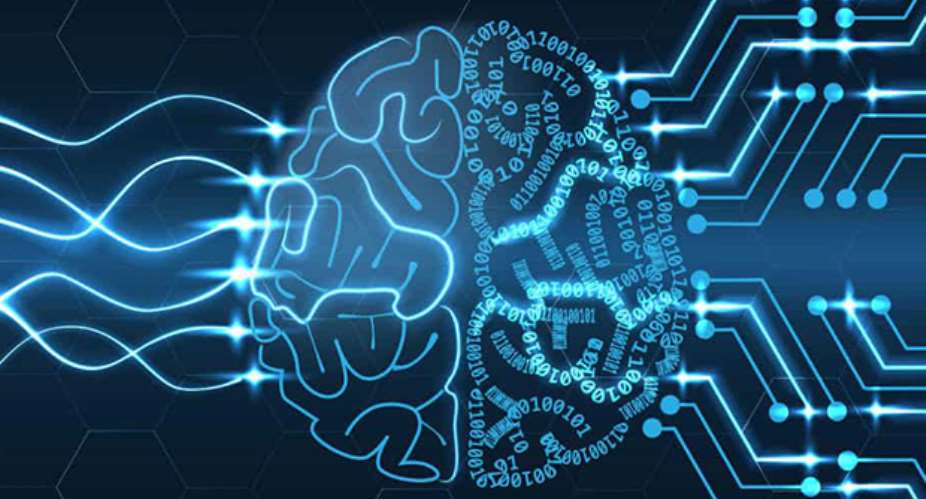Artificial Intelligence (AI) is a technology that has sparked both hope and apprehension among people around the world. Some view it as a powerful tool that can uplift mankind, while others fear it as a destructive force that threatens human values and knowledge. In the context of Africa and other underdeveloped regions of the planet, the debate surrounding AI becomes even more pertinent. I am just exploring theoretically, the impact of AI on these regions, taking into consideration both its potential benefits and the challenges it presents, all while keeping in mind the diverse and burgeoning populations of these areas.
AI offers a multitude of opportunities that can be harnessed for the betterment of Africa and underdeveloped regions. One of its most promising applications is in healthcare. With AI-driven diagnostics and telemedicine, remote and underserved communities can gain access to healthcare services that were previously out of reach. AI-powered medical devices can provide early detection of diseases, enabling timely treatment and potentially saving countless lives.
Furthermore, AI can revolutionize agriculture in these regions. By using predictive analytics, AI can help farmers make informed decisions about crop planting and pest control, leading to increased agricultural productivity. This, in turn, can combat food insecurity and improve the livelihoods of millions of people who rely on agriculture for their sustenance.
Education is another sector where AI can have a transformative impact. In regions with limited access to quality education, AI-powered e-learning platforms can provide personalized and accessible learning experiences. These platforms can adapt to individual student needs, making education more effective and inclusive. This is particularly important in countries with rapidly growing populations, such as Nigeria, where education systems often struggle to keep pace with demand.
While the potential benefits of AI in Africa and underdeveloped regions are substantial, there are valid concerns about its darker side. One major concern is the potential for job displacement. As AI and automation technologies advance, there is a risk of traditional jobs becoming obsolete. For example, in manufacturing, where many underdeveloped regions have established industries, the rise of AI-driven robots could lead to job losses on a significant scale.
Moreover, there are ethical and societal challenges associated with AI, particularly regarding data privacy and bias. AI algorithms can inadvertently perpetuate existing biases in datasets, leading to discrimination in areas like hiring, lending, and law enforcement. Ensuring that AI is used ethically and transparently is a pressing issue, especially when dealing with diverse and often marginalized populations.
Africa, in particular, faces a unique challenge when it comes to AI and population. It is estimated that by 2050, Africa's population will double, reaching 2.4 billion people. This demographic explosion presents both an opportunity and a challenge for AI adoption. On one hand, AI can help manage the demands of such a rapidly growing population, from healthcare to urban planning. On the other hand, the sheer scale of the challenge can strain resources and exacerbate inequality if not properly managed.
The question of whether AI is a blessing or a curse for Africa and underdeveloped regions is a complex one. The potential for positive transformation is undeniable, but so are the risks and challenges. As AI technologies continue to advance, it is crucial that governments, organizations, and society as a whole work together to harness AI's potential for the benefit of all. This includes addressing issues of job displacement, ethical AI usage, and ensuring that the benefits of AI are accessible to the most vulnerable populations. In the words of Nelson Mandela, "Education is the most powerful weapon which you can use to change the world." AI has the potential to be a powerful tool in the hands of Africa and underdeveloped regions, but it must be wielded wisely and inclusively to ensure that it truly becomes a force for positive change and not a destructive one.
Written by
ABU IBRAHIM AZEBRE
[email protected]





 Lay KPMG audit report on SML-GRA contract before Parliament – Isaac Adongo tells...
Lay KPMG audit report on SML-GRA contract before Parliament – Isaac Adongo tells...
 Supervisor remanded for stabbing businessman with broken bottle and screwdriver
Supervisor remanded for stabbing businessman with broken bottle and screwdriver
 NDC watching EC and NPP closely on Returning Officer recruitment — Omane Boamah
NDC watching EC and NPP closely on Returning Officer recruitment — Omane Boamah
 Your decision to contest for president again is pathetic – Annoh-Dompreh blasts ...
Your decision to contest for president again is pathetic – Annoh-Dompreh blasts ...
 Election 2024: Security agencies ready to keep peace and secure the country — IG...
Election 2024: Security agencies ready to keep peace and secure the country — IG...
 People no longer place value in public basic schools; new uniforms, painting wil...
People no longer place value in public basic schools; new uniforms, painting wil...
 'Comedian' Paul Adom Otchere needs help – Sulemana Braimah
'Comedian' Paul Adom Otchere needs help – Sulemana Braimah
 Ejisu by-election: Only 33% of voters can be swayed by inducement — Global InfoA...
Ejisu by-election: Only 33% of voters can be swayed by inducement — Global InfoA...
 Minority will expose the beneficial owners of SML, recover funds paid to company...
Minority will expose the beneficial owners of SML, recover funds paid to company...
 Prof. Opoku-Agyemang has ‘decapitated’ the NPP’s strategies; don’t take them ser...
Prof. Opoku-Agyemang has ‘decapitated’ the NPP’s strategies; don’t take them ser...
